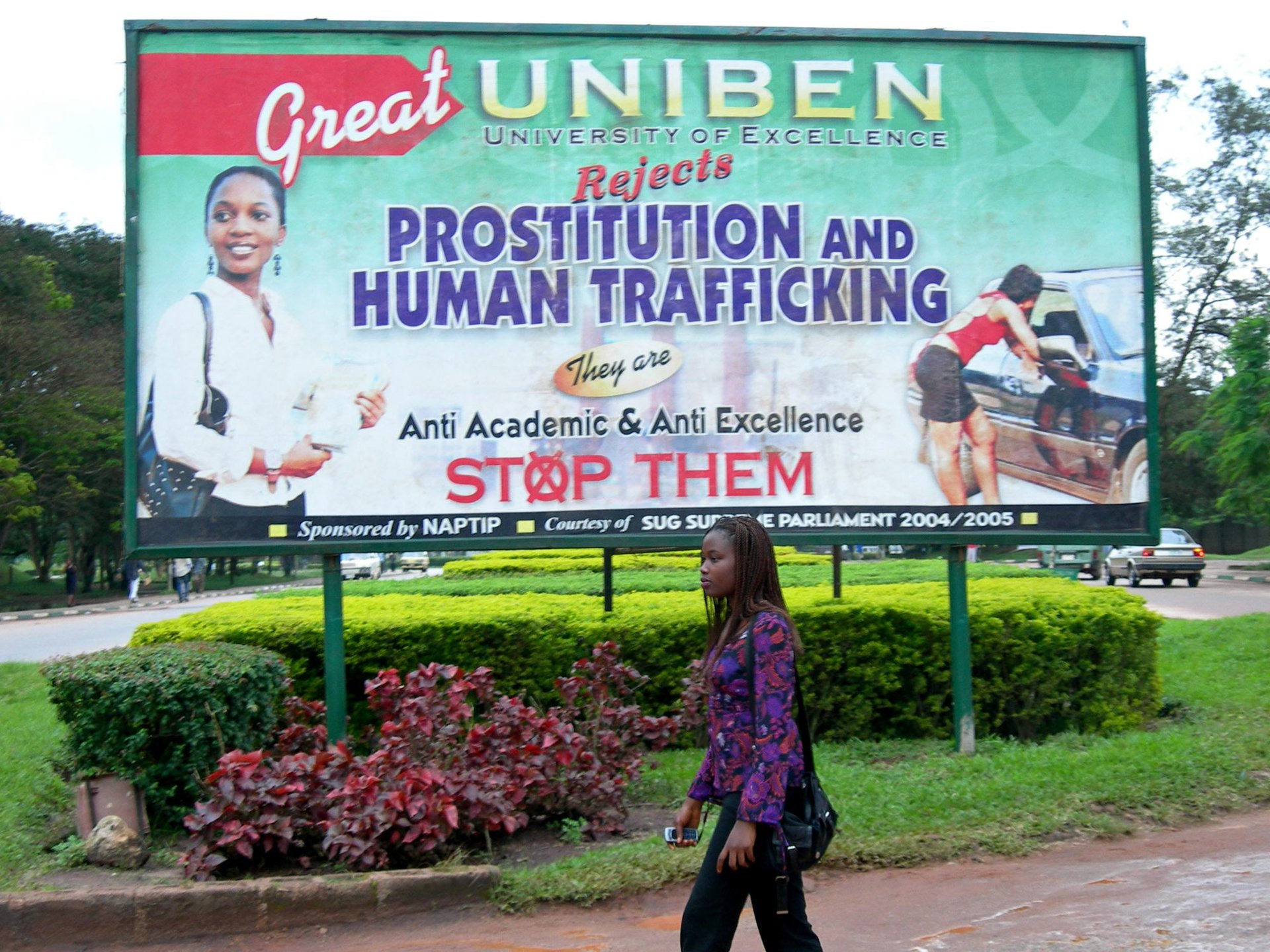More Nigerian women are being sucked into Italy’s dangerous world of sex trafficking
Despite work by local and international NGOs, Italy remains a thriving destination for sex trafficking and a majority of the victims are Nigerian women.


Despite work by local and international NGOs, Italy remains a thriving destination for sex trafficking and a majority of the victims are Nigerian women.
According to the International Organization for Migration (IOM), there has been a “huge increase” in the number of Nigerian women arriving in Italy by boat from Libya. Carlotta Santarossa, counter-trafficking project manager at IOM says a majority of the arriving women are “victims of trafficking and are likely to end up exploited in Italy or other European countries.”
In the last three years, there’s been an almost ten-fold increase in the number of Nigerian women registered at landing points in Sicily.
The rapidly increasing arrivals, Santarossa says, pose a major problem as Italy cannot provide them “with services they need.” IOM estimates 80% of Nigerian women arrivals in Sicily were trafficked and will be forced into prostitution in Italy where a working model for sex trafficking already exists.
Over the past year, there’s been an uptick in organized crime activities of Nigerian gangs in Sicily where they have operated albeit under a fragile peace pact with the local mob. Given the Sicilian Cosa Nostra Mafia’s preference not to deal in prostitution, much of Nigerian gangs’ illicit trade is rooted in trafficking sex workers.
In general, there’s been an increase in Nigerian arrivals in Italy via sea. In 2016, for the first time, Nigeria surpassed Eritrea as the largest national group for migrants accounting for 37,500 of the 180,000 migrant arrivals in Italy by sea. The uptick in Nigerian migrants is linked to the country’s economic woes. Battered by falling earnings and exports, Africa’s largest economy ended 2016 on course for a full year of negative growth with already-high unemployment figures inevitably climbing.
But Italy will likely not turn out to be proverbial greener pastures either as, given the increased arrivals, law enforcement and other key services are strained. “If there are 11,000 women arriving in one year, there is simply no way of providing them with any help or security,” Flavio Di Giacomo, an IOM spokesperson in Italy says. “There is nothing we can do to help them.”